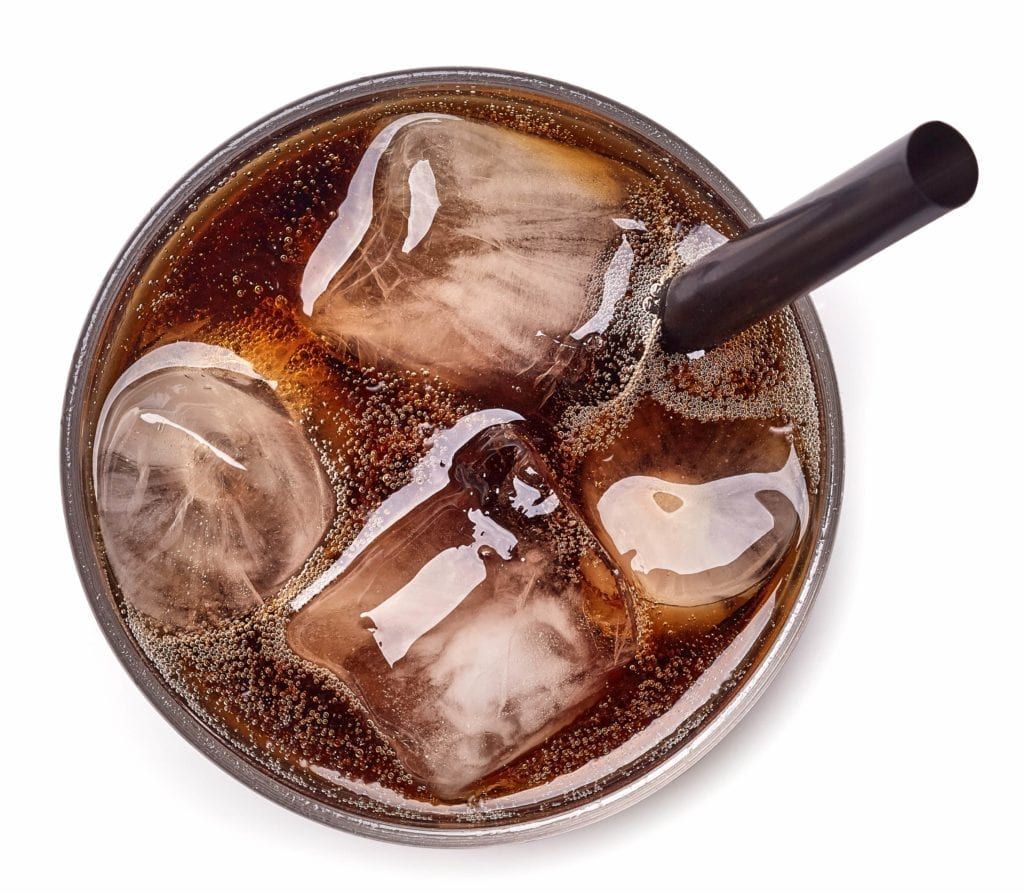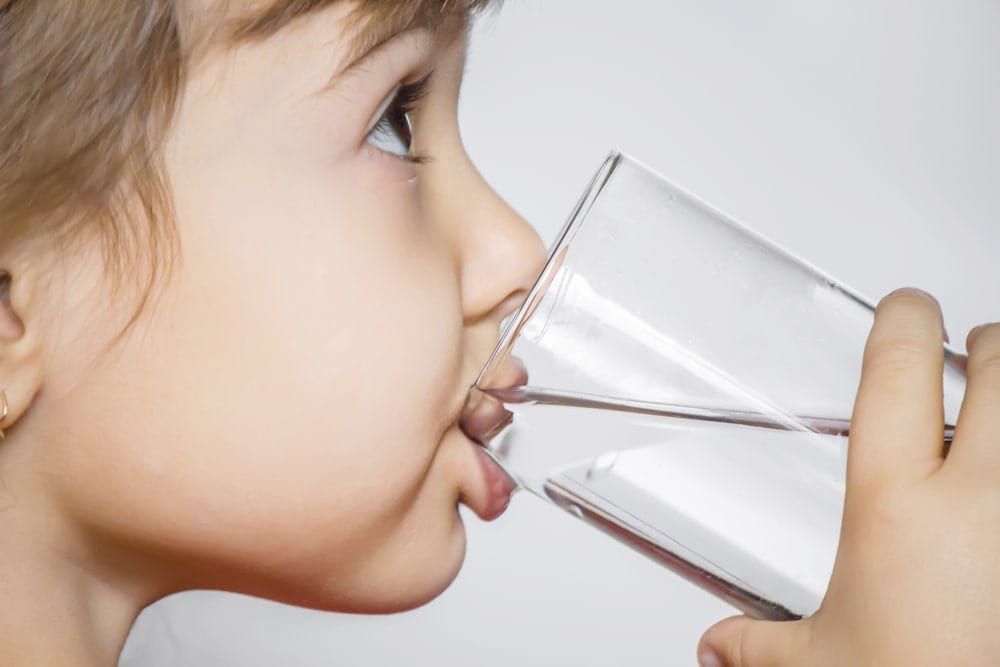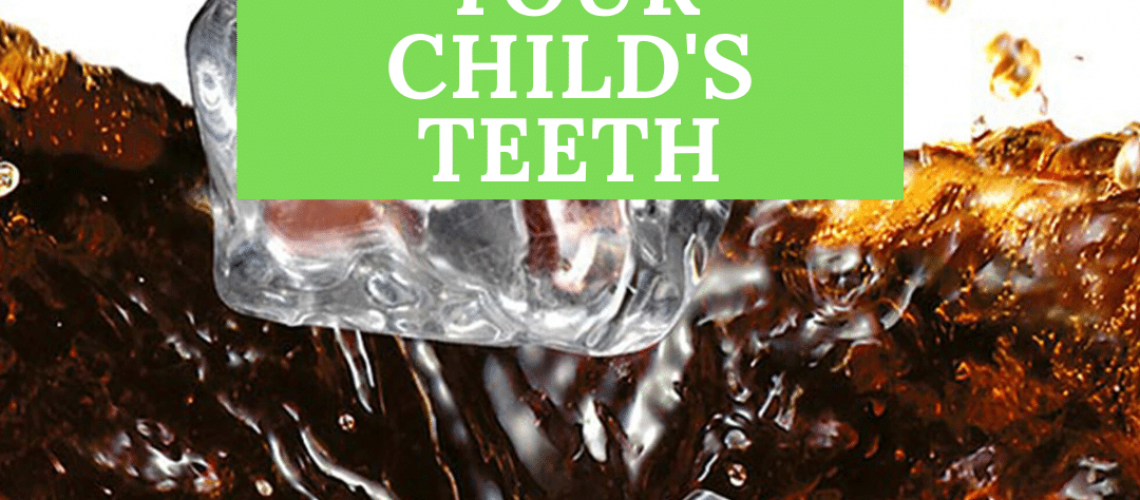Did you know that as many as 63% of children drink at least one sugar-sweetened beverage (SSB) per day? The Centers for Disease Control and Prevention define sugar-sweetened beverage as any liquid sweetened with sugars such as brown sugar, corn sweetener, corn syrup, dextrose, fructose, glucose, high-fructose corn syrup, honey, lactose, malt syrup, maltose, molasses, raw sugar, and sucrose. With that being said, SSBs can include regular soda, sports and energy drinks, sweetened waters, fruit drinks, coffee, and tea.
Unfortunately these sugar-sweetened beverages have a very bittersweet truth. Yes, they taste wonderful, but they are highly damaging to your child’s teeth. While the occasional SSB may be okay, excessive consumption of beverages loaded with sugar can be extremely detrimental to your child’s oral health, as well as their overall health.

For starters, sugar is the primary food source of the naturally-occurring bacteria in your child’s mouth. Managing the population of these bacteria is necessary to prevent tooth decay and gum disease. While the mouth can naturally defend itself against these bacteria, if their population increases too much, it overwhelms the natural defense mechanism. This leads to bacteria accumulating on the teeth and along the gum line, which can ultimately lead to cavities and gum disease.
However, increased bacterial populations are not the only problem that excess sugars can cause. With an increased bacterial population also comes an increase in the acidic waste products expelled by the bacteria. These acidic waste products are deposited onto the tooth enamel where they begin to erode the tooth enamel. The more bacteria in one area, the stronger the acidic waste product, and the faster dental erosion can occur.
In some cases, the erosion process can be increased by the acids in certain soft drinks. For example, sodas often contain tartaric, phosphoric, or citric acids and fruit juices often contain citric acid that start the erosion process before the bacterial waste products. This ultimately increases the amount of dental erosion that occurs and makes your child’s tooth enamel more susceptible to decay.
At this point, you may be wondering if there is any way you can still allow your child to have the occasional soft drink without damaging their teeth. Luckily, there are a few things you can do to minimize the damage done to your child’s teeth by soft drinks. These include:
Control the Amount
When it comes to soft drinks and oral health, moderation is the key. The less soft drinks your child consumes, the better. With that being said, it is important to only allow certain soft drinks every now and then instead of making them a part of your child’s daily dietary routine. Instead, encourage your child to drink more water or milk.
Set Time Limits
The longer your child takes to drink their soft drink, the more damage it continues to do to their teeth. Therefore, you should put a time limit on how long you will let your child have the drink. For example, you can provide a soft drink at lunch, but take it away once lunch is over. It is strongly encouraged not to let your child drink a sugary beverage all day because of the damage it can cause to their teeth.
Give them a straw
Straws are a great way to decrease the damage done to your child’s teeth. This is because they decrease the amount of contact that the drink will have with your child’s teeth.

Rinse
After your child is done with their soft drink, have them drink a sip or two of water or milk. This rinses the excess sugar and acid from their mouth and decreases the amount of damage done.
Don’t forget to visit your pediatric dentist
Since soft drinks can be potentially harmful to your child’s oral health, it is highly important to schedule regular dental exams every six months to have your child’s teeth examined and cleaned.
Overall, sugar-sweetened beverages are not ideal beverages for maintaining oral health due to excess sugars and possible acid. However, this does not necessarily mean that you need to avoid giving your child soft drinks altogether. Rather, you should follow certain guidelines to decrease the amount of damage done by soft drinks, while still providing your child with their favorite drinks.

Dr. Marielena Torres is board certified and is constantly continuing her education to stay informed of the latest developments in pediatric dentistry. This allows her to offer patients and their parents the most cutting-edge care and education.

